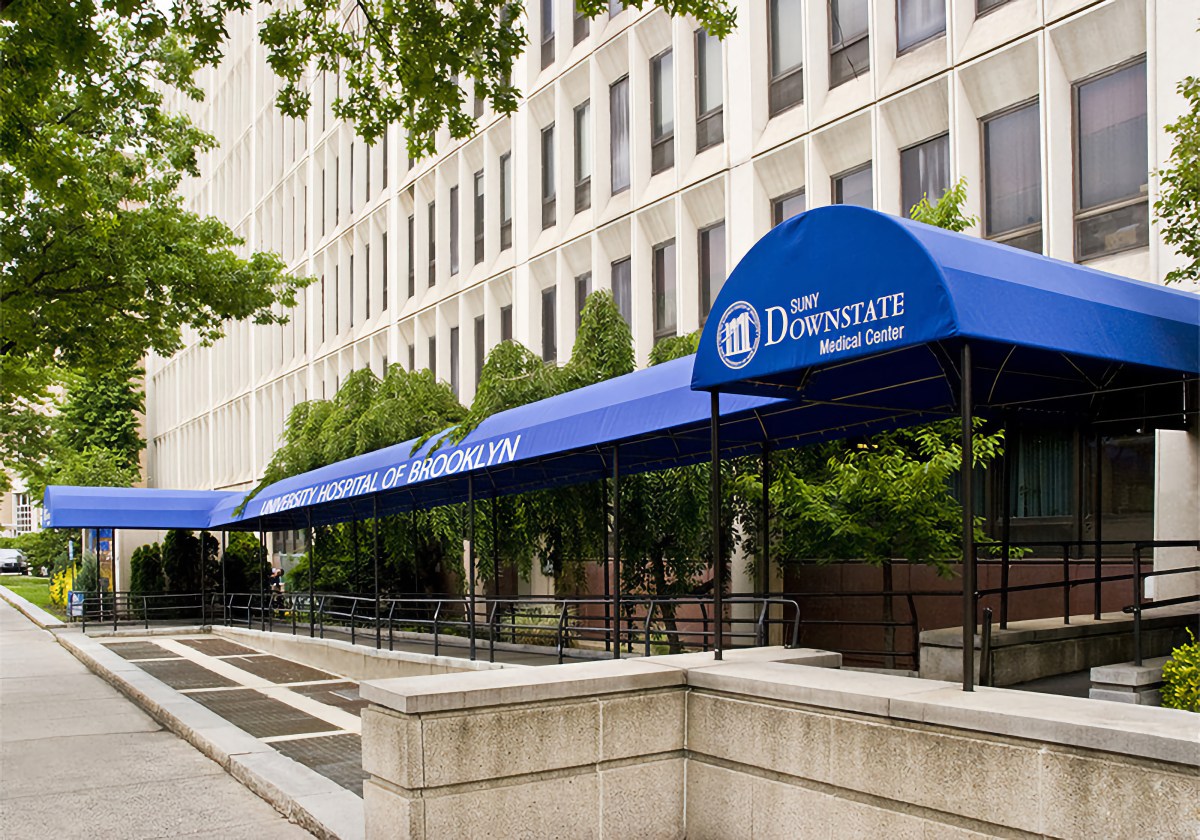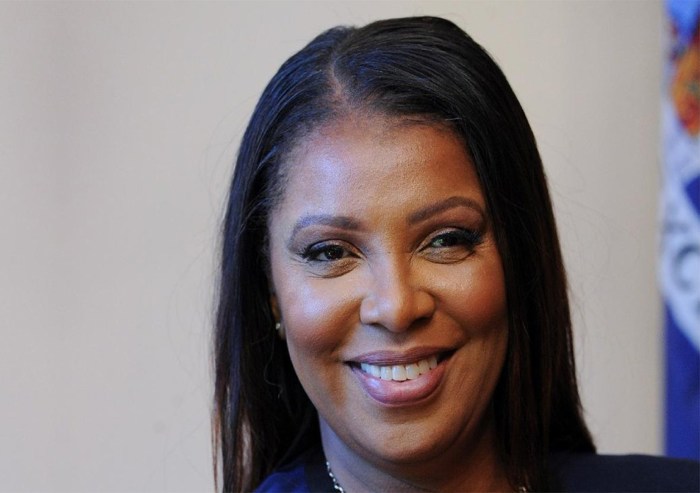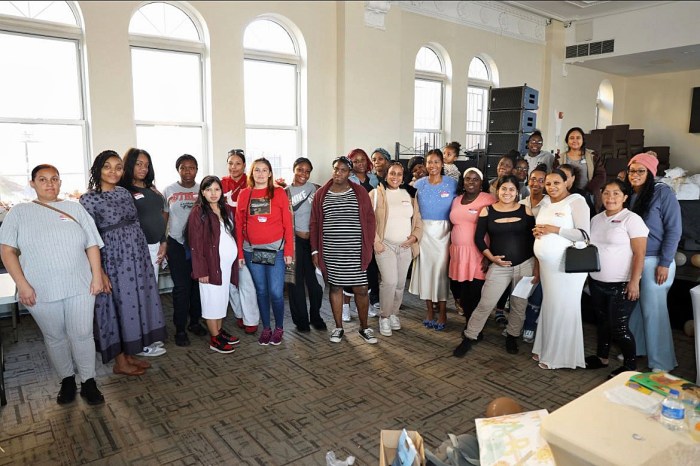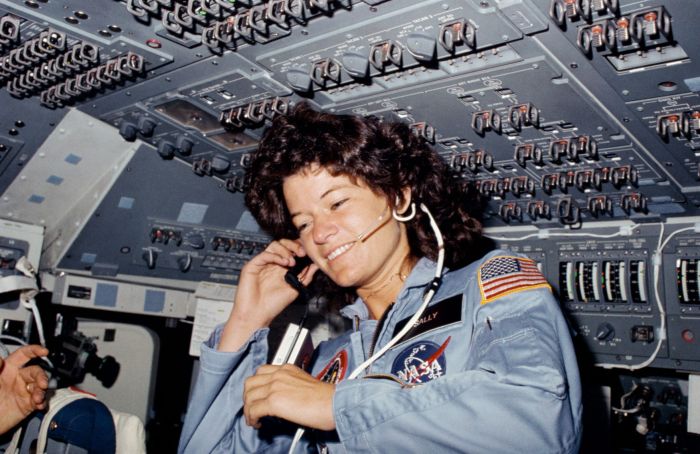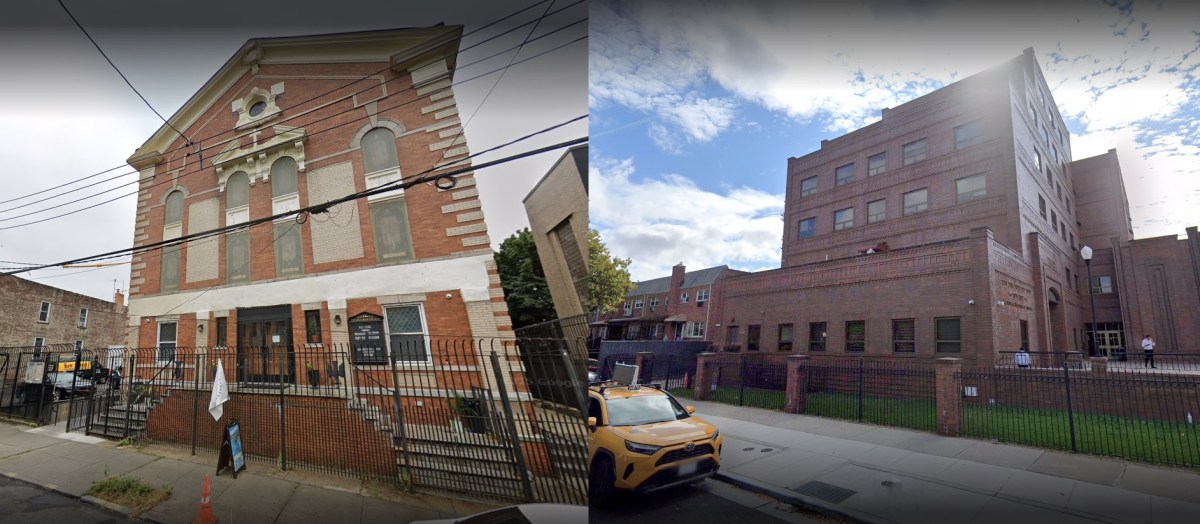The department chairs at State University of New York (SUNY) Downstate College of Medicine and University Hospital on Wednesday said they were extremely concerned about a proposal by Gov. Kathy Hochul to “transform” the major hospital in the epicenter of the Caribbean community in Brooklyn.
“It is with extreme concern that the department chairs at the SUNY Downstate College of Medicine have learned of the SUNY proposal to transform University Hospital at Downstate (UHD) into a facility without any inpatient services,” said the chairs in a joint statement.
“Assurances that this will improve the care received by the residents of central Brooklyn, that the College of Medicine’s educational mission will be unaffected, and that the residency and fellowship programs sponsored by the institution will be able to continue their role in training physicians who in large numbers remain in New York City and New York State, demonstrate to us of a lack of appreciation of the nature, scope, and far-reaching impact of our clinical operation in central Brooklyn, and our mission for educating, training and developing our healthcare workforce,” they added.
“Rather, we believe that these vital functions of Downstate will be drastically compromised,” the chairs continued. “Even the announcement itself was a disruptive and destabilizing force, with immediate, far-reaching repercussions on students and trainees, considering whether to launch or continue their careers at Downstate.”
The chairs comprise: Cynthia L Benson, DO, MPH, MBA, director of quality, Emergency Department, interim medical director, Emergency Department, interim chair, Emergency Department; Sydney C. Butts, MD, FACS, interim chair and associate professor, chief-facial plastic and reconstructive surgery, Department of Otolaryngology; Camille A. Clare, MD, MPH, CPE, FACOG, chair, Department of Obstetrics and Gynecology; and Sharon A. Glick, MD, MS, Chair, Department of Dermatology, Program Director, Department of Dermatology.
Others are: Panogiotis Kougias, MD, MSc., chair, Department of Surgery, chief, Division of Vascular Surgery; Jenny Libien, MD, Ph. D, chair of pathology; Deborah L. Reede, professor and chair, Department of Radiology; Christopher Román, Ph. D, associate professor and chair, Department of Cell Biology; Daniel M. Rosenbaum, MD, Distinguished Service professor and chair, Department of Neurology; Moro Salifu, MD, MBA, MPH, MACP, chair, Department of Medicine; and Roman Shinder, MD, FACS, interim chairman of Ophthalmology, director of Oculoplastics.
Other chairs: Ramaswamy Viswanathan, MD, DrMedSc., professor and interim chair, Department of Psychiatry and Behavioral Sciences, Senator, SUNY Faculty Senate, president-elect, American Psychiatric Association; Stephen Wadowski, MD, professor and chairman, Department of Pediatrics; Jeffrey P. Weiss, MD, Ph. D, FACS, professor and chair, Department of Urology, director, MD-PhD Program, School of Graduate Studies; David Wlody, MD, chair, Department of Anesthesiology; and Robert K. S. Wong, Ph. D, distinguished professor and chair, Physiology and Pharmacology.
“We are concerned that the core missions of Downstate — to address health care disparities that disproportionately affect our community in central Brooklyn, and to diversify the health care workforce—threaten to be undermined by this change,” the chairs said. “We wish to make it clear that we are committed to working with SUNY to address the very real issues affecting UHD. However, we urge Gov. Hochul and SUNY to reconsider this proposal in its present form, and to provide the support UHD requires to continue its multiple, critically important missions.”
The chairs said they refute SUNY’s contention that UHD loses up to $100 million per year “as part of a justification for this transformation.”
“It is undeniable that the hospital has sustained significant losses since 2019. This is likely to have been a transient event, however, in large part due to the designation of UHD as a COVID-only hospital, while being denied the necessary support to operate under that designation,” they said.
“Even after this designation was removed, there remained a significant drop in our census, in large part due to a perception in the community that we remained a COVID-only facility, and the flight of community practitioners that previously referred patients to us,” they added. “Due to the efforts of hospital leadership, our medical staff, and our nursing colleagues, it is expected that UHD will approach break-even for the current fiscal year.”
The chairs said this is significant in comparison with the losses sustained by neighboring hospitals in Brooklyn.
For example, they said the Health and Hospital (H+H) system receives support from New York City on the order of $2.9 billion. Maimonides Medical Center most recently posted a loss of $147 million, and in 2023, the One Brooklyn Health system received a subsidy of greater than $400 million.
“And with the imminent end to our unfavorable lease at the Bay Ridge facility, we anticipate a further improvement in the bottom line,” the chairs said.
They also refuted SUNY’s assessment of the hospital’s physical plant as being beyond repair and its estimate that a new hospital could cost $3-4 billion, saying that both points are “questionable.”
The chairs said numerous improvements have been made with the purpose of addressing admittedly significant issues, if due only to the age of the facility: a new interventional radiology facility, new CT scanners, replacement of all windows in the facility, and segregation of the electrical system.
“It is far from obvious that the facility is beyond repair,” they said. “The cost of building an entirely new facility, which, of course, would be a long-term solution, is highly unlikely to cost as much as has been estimated; the new H+H Ruth Bader Ginsberg Hospital, formerly Coney Island Hospital, a state-of-the-art 350 bed facility, cost $923 million. We feel that all options for improving the facility be considered.”
The chairs said they cannot overstate the significant adverse effect of the governor’s proposal on the patients that the hospital serves in the central Brooklyn community.
“It is inaccurate to claim that our daily census represents a fraction of our bed capacity,” they said. “It has been stated that UHD has over 300 beds with an average daily census of only 150, the implication being that we are only half full.
“However, the number of originally certified beds bears no relationship to the actual current number of staffed beds; we are staffed for the number of beds that are occupied, the 350-bed figure being entirely theoretical,” they added. “On a daily basis, we have a sufficient number of inpatients that the admission of patients from our Emergency Department is often delayed.”
The chairs said the effect on both undergraduate and graduate medical education will be “devastating”, with the “transformation” of the hospital.
“We have been assured that the College of Medicine will be unaffected by the proposed restructuring of UHD. Given that our students spend up to 30 percent of their clinical rotations at UHD, this assertion seems highly unlikely,” they said. “We are at distinct disadvantage when attempting to place our students at neighboring affiliate hospitals, in large part due to the outsized footprint of offshore medical schools, which can afford to pay hospitals significant sums, up to $50,000 per year per student, to obtain clinical rotations.
“Supervising physicians at local affiliates do not always have the same commitment to education that our own physicians have; and, in fact, many local hospitals have specifically excluded education from their mission statements,” they added.
The chairs believe that there needs to be a “central Brooklyn-focused solution” to the problems of healthcare in Kings County.
“There is, undoubtedly, redundancy of care in multiple hospitals across the borough,” they said. “A rational assessment of these services needs to be made, with the goal of regionalizing health care. SUNY-Downstate should take a leading role in this regional re-visioning of health care, serving as the academic center for hospitals that we can partner with.”
The chairs said there is “an urgent need” for the construction of a state-of-the-art ambulatory care center, containing the full range of diagnostic and therapeutic capabilities, encompassing both primary and specialty care, as well as ambulatory surgical and procedural capabilities.
They said this center should focus on the specific needs of the community and should have a “laser focus” on addressing disparities and inequities in health care.
The chairs said it is essential that an inpatient footprint be maintained within the current system.
They said, while this may in fact lead to a decrease in the number of beds, “these beds should be dedicated to the highly specialized care best provided by a tertiary care institution, again, in coordination with other hospitals in central Brooklyn.”
The chairs at Downstate said they have spent their entire careers at the institution, have seen the “tremendous value” of the care they provide, and “strongly value” their connection to the central Brooklyn community and the many vulnerable patients they take care of.
“We look forward to working with SUNY to ensure that we can continue to provide this care,” they said.
On Tuesday, State Sen. Zellnor Y. Myrie said he was “pleased” with the massive turn-out last Thursday’s rally to save the hospital from closing.
“Last Thursday, we rallied as a community against the governor’s proposal to shutter SUNY Downstate Hospital. Despite the frigid temperatures, over 1200 healthcare workers and community members stood together, and the energy and passion were felt by all,” said Myrie, who represents the 20th Senate District that encompasses Downstate Hospital, in a message to constituents.
“I was pleased to see so many of you join us at the rally,” added Myrie, who has been in the vanguard to keep the doors of the hospital open. “The message has been and continues to be clear: this community opposes any plan to reduce healthcare access where it’s needed most in Central Brooklyn.
“I was proud to stand alongside so many faith and labor leaders, doctors, nurses, and concerned neighbors who stand in strong opposition to this plan,” continued Myrie, whose grandmother hailed from Jamaica. “In fact, new polling released today confirms that Central Brooklyn is overwhelmingly against the governor and SUNY’s Downstate proposal.”
At the rally, in front of the hospital on Clarkson Avenue in Brooklyn, Myrie was explicit that he will continue to fight valiantly to save Downstate Hospital.
“Think about the babies who will be born just a few steps from us. Think about the future we’re protecting,” he said. “If we have to hold 10 more rallies, we will.
“What more do we have to sacrifice?” Myrie asked. “We deserve better.”
Amid chants of “Brooklyn needs Downstate”, United University Professions (UUP) President Fred Kowal, whose union represents the majority of workers at Downstate, said: “We’re here for one reason and one reason alone, and that’s because Brooklyn needs Downstate.
“We will not let Downstate close,” he said. “Not today, not tomorrow, not ever.”
Kowal further warned that if Gov. Hochul pursues her plan “to close this place of healing, she will be locking out Black mothers and Black babies,” adding: “That is wrong.”
Civil right activist the Rev. Al Sharpton also spoke at the rally, telling demonstrators: “We don’t have much choice in Brooklyn, so we choose to fight.
“If we don’t do our duty, people will suffer,” he also cautioned.
Later, State Assemblyman Brian Cunningham, who also represents Downstate and the surrounding communities, told Caribbean Life that he remained “steadfast in my commitment to preserving Downstate Medical Center, a lifeline for thousands of low-income people of color in District 43.”
Cunningham, whose mother hails from Jamaica, said while the recently announced investment of $200 million to cover two years of operating costs and $300 million for future infrastructure improvements “appears promising on the surface, this funding is meaningless without input from the local community.
“I am outraged by the state leadership’s refusal for real engagement with residents, healthcare workers, and local leaders,” he said. “Infrastructure funding cannot be allowed to move forward without input from those who know our community’s needs best.
“I also refuse to view funding to keep the lights on as anything more than the bare minimum,” he added. “That money is not charity, nor is it undeserved; it is essential, and our community has earned it.”
Cunningham noted that earlier last week he introduced another piece of legislation, which calls on Gov. Hochul and SUNY leadership to create a Community Advisory Board “that will play an active role in funding decisions for Downstate.
“The board must represent the demographics of this historically Black and working-class neighborhood and include patients, healthcare workers, clergy, and local government leaders who reside in the surrounding community,” the assemblyman said. “A transformation plan that is not informed by the needs of our community is an affront to racial and economic justice and an insult to the people of Central Brooklyn.”


